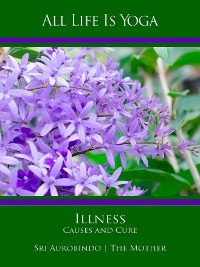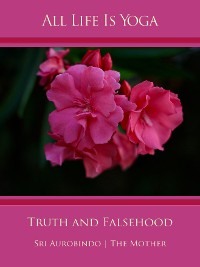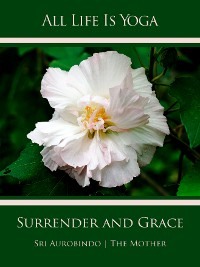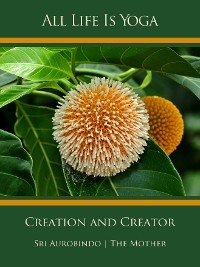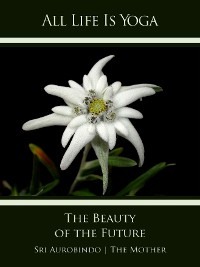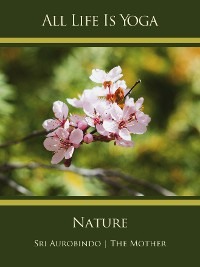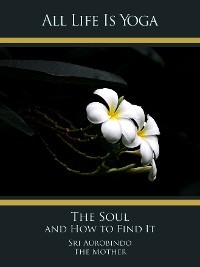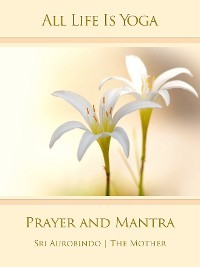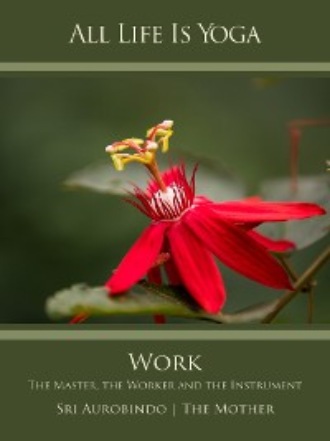
Полная версия
All Life Is Yoga: Work

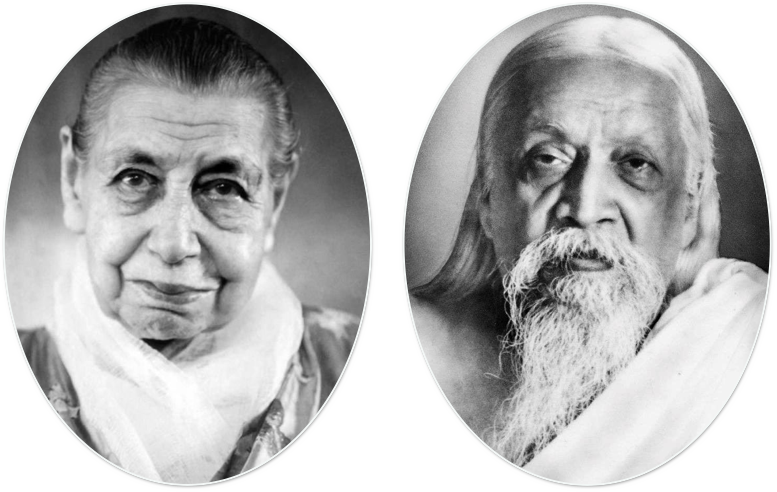
Omsriaurobindomira
All
Life
Is
Yoga
“All life is Yoga.” – Sri Aurobindo
Work
The Master, the Worker and the Instrument
Sri Aurobindo | The Mother

SRI AUROBINDO BHAVAN
BERCHTESGADENER LAND

Copyright 2021
AURO MEDIA
Verlag und Fachbuchhandel
Wilfried Schuh
Germany
www.sriaurobindo.center
www.auro.media
ALL LIFE IS YOGA
Work – The Master, the Worker and the Instrument Selections from the Works of Sri Aurobindo and The Mother First edition 2021 ISBN 978-3-96387-072-9
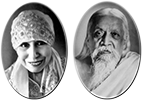
© Photos and selections of the works of
Sri Aurobindo and the Mother:
Sri Aurobindo Ashram Trust
Puducherry, India

Flower on the cover:
Passiflora vitifolia. Bright red. Spiritual significance and explanation given by the Mother: Power aspiring to become an instrument for the divine work Power opening to a higher consciousness, awakens to the need of being at the service of the Divine.
Publisher’s Note
This is one in a series of some e-books created by SRI AUROBINDO DIGITAL EDITION and published by AURO MEDIA under the title All Life Is Yoga. Our effort is to bring together, from Sri Aurobindo and the Mother, simple passages with a practical orientation on specific subjects, so that everyone may feel free to choose a book according to his inner need. The topics cover the whole field of human activity, because true spirituality is not the rejection of life but the art of perfecting life.
While the passages from Sri Aurobindo are in the original English, most of the passages from the Mother (selections from her talks and writings) are translations from the original French. We must also bear in mind that the excerpts have been taken out of their original context and that a compilation, in its very nature, is likely to have a personal and subjective approach. A sincere attempt, however, has been made to be faithful to the vision of Sri Aurobindo and the Mother. These excerpts are by no means exhaustive.
Bringing out a compilation from the writings of Sri Aurobindo and the Mother, which have a profound depth and wideness unique, is a difficult task. The compiler’s subjective tilt and preferences generally result in highlighting some aspects of the issues concerned while the rest is by no means less significant. Also without contexts of the excerpts the passages reproduced may not fully convey the idea – or may be misunderstood or may reduce a comprehensive truth into what could appear like a fixed principle.
The reader may keep in mind this inherent limitation of compilations; compilations are however helpful in providing an introduction to the subject in a handy format. They also give the readers a direct and practical feel of some of the profound issues and sometimes a mantric appeal, musing on which can change one’s entire attitude to them.
The excerpts from the writings of Sri Aurobindo and the Mother carry titles and captions chosen by the editor, highlighting the theme of the excerpts and, whenever possible, borrowing a phrase from the text itself. The sources of the excerpts are given at the end of each issue.
We hope these compilations will inspire the readers to go to the complete works of Sri Aurobindo and the Mother and will help them to mould their lives and their environments towards an ever greater perfection.
“True spirituality is not to renounce life, but to make life perfect with a Divine Perfection.” – The Mother
* * *
ContentsTitle PageCopyrightPublisher’s NoteQuotationsI. INTRODUCTORY NOTES1. Significance of Life and Existence2. Work – Importance and Nature3. Power of Right Attitude4. Is Business Something Tainted?5. Sri Krishna’s Answer to ArjunaII. RIGHT SPIRIT IN WORK1. Meaning of Right Spirit2. The Spirit of Self-consecration3. Renunciation of All Attachments4. Equality in the Mind and Soul5. Abolition of the Sense of Ego6. Divine Perfection Must Be the AimIII. PRACTICAL GUIDANCE1. How to Know What Is to Be Done2. The True Attitude: Remember and Offer3. Desire and Self-offering in Works4. Perfection in Works5. How to Work6. Working With Others7. The Condition of Success8. Meaning of Work in the Integral YogaIV. THE DELIGHT OF WORKS1. Divine Works2. The Divine WorkerAPPENDIXReferencesGuideCoverTable of ContentsStart Reading
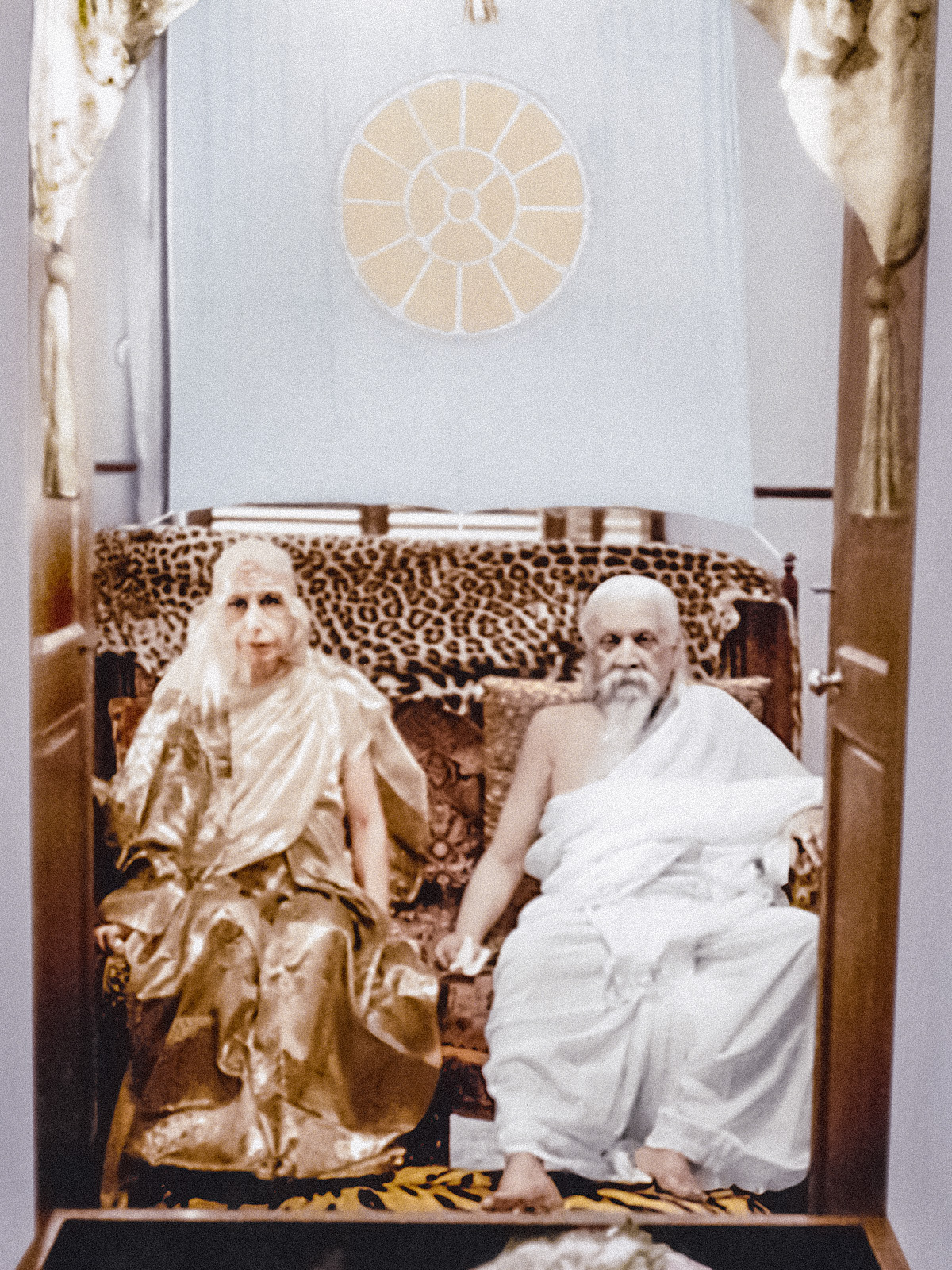
Action is for self-finding, for self-fulfilment, for self-realisation and not only for its own external and apparent fruits of the moment or the future. — Sri Aurobindo
Whatever work you do, do it as perfectly as you can. That is the best service to the Divine in man. — The Mother
* * *
Chapter 1
Significance of Life and Existence
Words of Sri Aurobindo
Existence is not merely a machinery of Nature, a wheel of law in which the soul is entangled for a moment or for ages; it is a constant manifestation of the Spirit.
*
Words of Sri Aurobindo
The universe is not only a material but a spiritual fact, life not only a play of forces or a mental experience, but a field for the evolution of the concealed spirit. Human life will receive its fulfilment and transformation into something beyond itself only when this truth is seized and made the motive force of our existence and the means of its effective realisation discovered.
*
Words of Sri Aurobindo
All life here is a stage or a circumstance in an unfolding progressive evolution of a Spirit that has involved itself in Matter and is labouring to manifest itself in that reluctant substance. This is the whole secret of earthly existence.
...the one significant mystery of this universe is the appearance and growth of consciousness in the vast mute unintelligence of Matter. The escape of Consciousness out of an apparent initial Inconscience, – but it was there all the time masked and latent, for the inconscience of Matter is itself only a hooded consciousness – its struggle to find itself, its reaching out to its own inherent completeness, perfection, joy, light, strength, mastery, harmony, freedom, this is the prolonged miracle and yet the natural and all-explaining phenomenon of which we are at once the observers and a part, instrument and vehicle.
*
Words of Sri Aurobindo
The life of the human creature, as it is ordinarily lived, is composed of a half-fixed, half-fluid mass of very imperfectly ruled thoughts, perceptions, sensations, emotions, desires, enjoyments, acts, mostly customary and self-repeating, in part only dynamic and self-developing, but all centred around a superficial ego. The sum of movement of these activities eventuates in an internal growth which is partly visible and operative in this life, partly a seed of progress in lives hereafter. This growth of the conscious being, an expansion, an increasing self-expression, a more and more harmonised development of his constituent members is the whole meaning and all the pith of human existence. It is for this meaningful development of consciousness by thought, will, emotion, desire, action and experience, leading in the end to a supreme divine self-discovery, that Man, the mental being, has entered into the material body.
*
Words of Sri Aurobindo
A spiritual evolution, an evolution of consciousness in Matter in a constant developing self-formation till the form can reveal the indwelling spirit, is then the keynote, the central significant motive of the terrestrial existence.
* * *
Chapter 2
Work – Importance and Nature
Words of Sri Aurobindo
What is the use of only knowing? I say to thee, Act and be, for therefore God sent thee into this human body.
*
Words of Sri Aurobindo
If thy aim be great and thy means small, still act; for by action alone these can increase to thee.
*
Words of Sri Aurobindo
Of course the idea of bigness and smallness is quite foreign to the spiritual truth. Spiritually there is nothing big or small. Such ideas are like those of the literary people who think writing a poem is a high work and making shoes or cooking the dinner is a small and low one. But all is equal in the eyes of the Spirit – and it is only the spirit within with which it is done that matters. It is the same with a particular kind of work, there is nothing big or small.
*
Words of Sri Aurobindo
Those who do work for the Mother in all sincerity, are prepared by the work itself for the right consciousness even if they do not sit down for meditation or follow any particular practice of Yoga. It is not necessary to tell you how to meditate; whatever is needful will come of itself if in your work and at all times you are sincere and keep yourself open to the Mother.
*
Words of Sri Aurobindo
The greater the difficulties that rise in the work the more one can profit by them in deepening the equality, if one takes it in the right spirit. You must also keep yourself open to receive the help towards that, for the help will always be coming from the Mother for the change of the nature.
*
Words of the Mother
To work for the Divine is to pray with the body.
*
Words of the Mother
Work done in the true spirit is meditation.
*
Words of the Mother
If you don’t do anything, you cannot have any experience. The whole life is a field of experience. Each movement you make, each thought you have, each work you do, can be an experience, and must be an experience; and naturally work in particular is a field of experience where one must apply all the progress which one endeavours to make inwardly.
If you remain in meditation or contemplation without working, well, you don’t know if you have progressed or not. You may live in an illusion, the illusion of your progress; while if you begin to work, all the circumstances of your work, the contact with others, the material occupation, all this is a field of experience in order that you may become aware not only of the progress made but of all the progress that remains to be made. If you live closed up in yourself, without acting, you may live in a completely subjective illusion; the moment you externalise your action and enter into contact with others, with circumstances and the objects of life, you become aware absolutely objectively of whether you have made progress or not, whether you are more calm, more conscious, stronger, more unselfish, whether you no longer have any desire, any preference, any weakness, any unfaithfulness – you can become aware of all this by working.
*
Words of the Mother
I suppose it is different for each one. So each one must find those activities which increase his aspiration, his consciousness, his deeper knowledge of things, and those which, on the contrary, mechanise him and bring him back more thoroughly into a purely material relation with things.
It is difficult to make a general rule.
That means that everything ought to be done exactly, as an offering?
Truly speaking, it depends more on the way of doing a thing than on the thing itself.
You take up some work which is quite material, like cleaning the floor or dusting a room; well, it seems to me that this work can lead to a very deep consciousness if it is done with a certain feeling for perfection and progress; while other work considered of a higher kind as, for example, studies or literary and artistic work, if done with the idea of seeking fame or for the satisfaction of one’s vanity or for some material gain, will not help you to progress. So this is already a kind of classification which depends more on the inner attitude than on the outer fact. But this classification can be applied to everything.
*
Words of the Mother
When in your work you find something giving trouble outside, look within and you will find in yourself the corresponding difficulty. Change yourself and the circumstances will change.
*
Words of the Mother
...the daily activity is the anvil on which all the elements must pass and repass in order to be purified, refined, made supple and ripe for the illumination which contemplation gives to them. All these elements must be thus passed one after the other through the crucible before outer activity becomes needless for the integral development. Then is this activity turned into the means to manifest Thee so as to awaken the other centers of consciousness to the same dual work of the forge and the illumination. Therefore are pride and satisfaction with oneself the worst of all obstacles. Very modestly we must take advantage of all the minute opportunities offered to knead and purify some of the innumerable elements, to make them supple, to make them impersonal, to teach them forgetfulness of self and abnegation and devotion and kindness and gentleness; and when all these modes of being have become habitual to them, then are they ready to participate in the Contemplation, and to identify themselves with Thee in the supreme Concentration. That is why it seems to me that the work must be long and slow even for the best and that striking conversions cannot be integral. They change the orientation of the being, they put it definitively on the straight path; but truly to attain the goal none can escape the need of innumerable experiences of every kind and every instant.
*
Words of the Mother
If we go back to the teaching of the Rishis, for example, there was no idea of flight out of the world; for them the realisation had to be terrestrial. They conceived a Golden Age very well, in which the realisation would be terrestrial. But starting from a certain decline of vitality in the spiritual life of the country, perhaps, from a different orientation which came in, you see... it is certainly starting from the teaching of the Buddha that this idea of flight came, which has undermined the vitality of the country...
* * *
Chapter 3
Power of Right Attitude
Words of the Mother
Is it really the best that always happens?... It is clear that all that has happened had to happen: it could not be otherwise – by the universal determinism it had to happen. But we can say so only after it has happened, not before. For the problem of the very best that can happen is an individual problem, whether the individual be a nation or a single human being; and all depends upon the personal attitude. If, in the presence of circumstances that are about to take place, you can take the highest attitude possible – that is, if you put your consciousness in contact with the highest consciousness within reach, you can be absolutely sure that in that case it is the best that can happen to you. But as soon as you fall from this consciousness into a lower state, then it is evidently not the best that can happen, for the simple reason that you are not in your very best consciousness. I even go so far as to affirm that in the zone of immediate influence of each one, the right attitude not only has the power to turn every circumstance to advantage but can change the very circumstance itself. For instance, when a man comes to kill you, if you remain in the ordinary consciousness and get frightened out of your wits, he will most probably succeed in doing what he came for; if you rise a little higher and though full of fear call for the divine help, he may just miss you, doing you a slight injury; if, however, you have the right attitude and the full consciousness of the divine presence everywhere around you, he will not be able to lift even a finger against you.
This truth is just the key to the whole problem of transformation. Always keep in touch with the divine presence, try to bring it down – and the very best will always take place. Of course the world will not change at once, but it will go forward as rapidly as it possibly can....
If each of you did your utmost, then there would be the right collaboration and the result would be so much the quicker. I have had innumerable examples of the power of right attitude. I have seen crowds saved from catastrophes by one single person keeping the right attitude. But it must be an attitude that does not remain somewhere very high and leaves the body to its usual reactions. If you remain high up like that, saying, “Let God’s will be done”, you may get killed all the same. For your body may be quite undivine, shivering with fear: the thing is to hold the true consciousness in the body itself and not have the least fear and be full of the divine peace. Then indeed there is no danger. Not only can attacks of men be warded off, but beasts also and even the elements can be affected. I can give you a little example. You remember the night of the great cyclone, when there was a tremendous noise and splash of rain all about the place. I thought I would go to Sri Aurobindo’s room and help him shut the windows. I just opened his door and found him sitting quietly at his desk, writing. There was such a solid peace in the room that nobody would have dreamed that a cyclone was raging outside. All the windows were wide open, not a drop of rain was coming inside.
* * *
Chapter 4
Is Business Something Tainted?
Words of Sri Aurobindo
What is of first importance is not the religious or non-religious character of the work done, but the inner attitude in which it is done. If the attitude is vital and not psychic, then one throws oneself out in the work and loses the inner contact. If it is psychic, the inner contact remains, the Force is felt supporting or doing the work and the sadhana progresses.
*
Words of Sri Aurobindo
I never thought that politics or feeding the poor or writing beautiful poems would lead straight to Vaikuntha or the Absolute. If it were so, Romesh Dutt on one side and Baudelaire on the other would be the first to attain the Highest and welcome us there. It is not the form of the work itself or mere activity but the consciousness and Godward will behind it that are the essence of Karmayoga; the work is only the necessary instrumentation for the union with the Master of works, the transit to the pure Will and power of Light from the will and power of the Ignorance.
*
Words of Sri Aurobindo
I may say however that I do not regard business as something evil or tainted, any more than it was so regarded in ancient spiritual India. If I did, I would not be able to receive money from X or from those of our disciples who in Bombay trade with East Africa; nor could we then encourage them to go on with their work but would have to tell them to throw it up and attend to their spiritual progress alone. How are we to reconcile X’s seeking after spiritual light and his mill? Ought I not to tell him to leave his mill to itself and to the devil and go into some Ashram to meditate? Even if I myself had had the command to do business as I had the command to do politics I would have done it without the least spiritual or moral compunction. All depends on the spirit in which a thing is done, the principle on which it is built and use to which it is turned. I have done politics and the most violent kind of revolutionary politics, ghoram karma, and I have supported war and sent men to it, even though politics is not always or often a very clean occupation nor can war be called a spiritual line of action. But Krishna calls upon Arjuna to carry on war of the most terrible kind and by his example encourage men to do every kind of human work, sarvakarmani. Do you contend that Krishna was an unspiritual man and that his advice to Arjuna was mistaken or wrong in principle? Krishna goes farther and declares that a man by doing in the right way and in the right spirit the work dictated to him by his fundamental nature, temperament and capacity and according to his and its dharma can move towards the Divine. He validates the function and dharma of the Vaishya as well as of the Brahmin and Kshatriya. It is in his view quite possible for a man to do business and make money and earn profits and yet be a spiritual man, practise Yoga, have an inner life. The Gita is constantly justifying works as a means of spiritual salvation and enjoining a Yoga of works as well as of Bhakti and Knowledge. Krishna, however, superimposes a higher law also that work must be done without desire, without attachment to any fruit or reward, without any egoistic attitude or motive, as an offering or sacrifice to the Divine. This is the traditional Indian attitude towards these things, that all work can be done if it is done according to the dharma and, if it is rightly done, it does not prevent the approach to the Divine or the access to spiritual knowledge and the spiritual life.
There is of course also the ascetic ideal which is necessary for many and has its place in the spiritual order. I would myself say that no man can be spiritually complete if he cannot live ascetically or follow a life as bare as the barest anchorite’s. Obviously, greed for wealth and money-making has to be absent from his nature as much as greed for food or any other greed and all attachment to these things must be renounced from his consciousness. But I do not regard the ascetic way of living as indispensable to spiritual perfection or as identical with it. There is the way of spiritual self-mastery and the way of spiritual self-giving and surrender to the Divine, abandoning ego and desire even in the midst of action or of any kind of work or all kinds of work demanded from us by the Divine. If it were not so, there would not have been great spiritual men like Janaka or Vidura in India and even there would have been no Krishna or else Krishna would have been not the Lord of Brindavan and Mathura and Dwarka or a prince and warrior or the charioteer of Kurukshetra, but only one more great anchorite. The Indian scriptures and Indian tradition, in the Mahabharata and elsewhere, make room both for the spirituality of the renunciation of life and for the spiritual life of action. One cannot say that one only is the Indian tradition and that the acceptance of life and works of all kinds, sarvakarmani, is un-Indian, European or Western and unspiritual.
* * *
Конец ознакомительного фрагмента.
Текст предоставлен ООО «ЛитРес».
Прочитайте эту книгу целиком, купив полную легальную версию на ЛитРес.
Безопасно оплатить книгу можно банковской картой Visa, MasterCard, Maestro, со счета мобильного телефона, с платежного терминала, в салоне МТС или Связной, через PayPal, WebMoney, Яндекс.Деньги, QIWI Кошелек, бонусными картами или другим удобным Вам способом.


